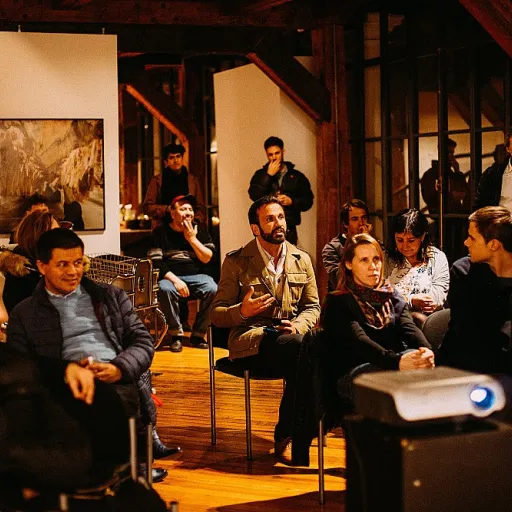
Understanding the Need for Customizable Workspaces
Recognizing the Evolution of Work Environment Needs
In the dynamic landscape of today’s modern office, it is crucial to understand the drivers behind the shift towards customizable workspaces. As businesses strive to foster a productive environment, the demand for efficient office space utilization and adaptable workstation furniture becomes paramount. Companies are increasingly moving away from traditional cubicles and fixed desks, opting for systems that better align with the evolving needs of their workforce. The rise of modular furniture and private office arrangements illustrates a clear trend towards flexibility. Businesses are emphasizing modular systems that allow for rapid configurations and adjustments, catering to specific organizational requirements while ensuring a coherent design ethos. With high-quality options like laminate finishes and a variety of elegant colors, modular workstations offer a degree of personalization that standard workstations lack. Moreover, the pressure to maximize square footage and reduce overheads drives organizations to "choose workspace solutions" that integrate efficient storage space and functional office chairs, among other components. This transition not only enhances productivity but also ensures that office spaces are adaptive, potentially impacting job satisfaction and work efficiency positively. Recent studies in Indian companies illustrate this shift, demonstrating how tailored office spaces can lead to improved employee engagement and overall corporate health. For those seeking the "best solution" for their office management challenges, comprehensive insights on enhancing efficiency with office management tools can be invaluable. Understanding these new workspace dynamics is fundamental in crafting an environment conducive to productivity and innovation. For further insights on optimizing office space, explore enhancing efficiency with office management tools in Indian companies.Benefits of Private Modular Workstations
Advantages of Personalized Modular Workstations
In the dynamic world of modern office space, the shift towards customizable modular workstations offers numerous advantages. The need for flexibility in office design is critical, and private office workstations made from modular furniture meet this demand. Companies are prioritizing personalized work environments that offer not only functionality but also enhance productivity. The benefits of opting for modular systems are vast, as they allow for a customized office environment tailored to the specific needs of an organization. These workstations are designed with the adaptability required to support various work styles, allowing each person to choose their ideal setup. With modular workstation furniture, companies can effectively utilize available space, ensuring that workstations, desks, and storage space are optimized for high quality performance. ### Key Benefits:- Scalability: Modular workstations are designed to grow with the company. This is essential in rapidly changing markets where expansion can happen overnight. The flexibility of modular systems means they can quickly accommodate additional personnel.
- Cost-Effectiveness: Although quality office furniture like the renowned Herman Miller might come with a higher price tag, the durability and flexibility of these pieces often provide a better long-term return on investment. Quick ship options further ensure that new modular setups are ready for installation without long lead times.
- Aesthetic and Productivity Enhancements: The appeal of a well-designed modular office setup extends beyond functionality. With choices in colors, laminates, and high-quality materials, these workspaces can provide a more stimulating environment for employees. This, in turn, boosts morale and productivity.
- Privacy and Focus: Unlike traditional open-plan cubicles, private modular workstations offer the necessary seclusion for tasks that require high concentration. This is achieved without sacrificing the communal benefits of an open office design.
Challenges in Implementing Modular Workstations
Overcoming Hurdles in Modular Workstation Adoption
The journey to implementing modular workstations in an office environment is not without its challenges. In pursuit of creating an adaptable office space, businesses often face a myriad of obstacles that can impede progress. However, with the right strategies and considerations, these challenges can be mitigated.
A significant barrier is often the cost associated with high quality modular systems. Solutions from leading brands, such as Miller and Herman, boast durability and aesthetic appeal but can come with a hefty price tag. While the price of workstation furniture, including tables, desks, and storage space, can be considerable, investing in quality ensures longevity and reduces future costs.
Aside from cost, achieving a balance between privacy and openness is crucial. The use of cubicles and private offices allows for undisturbed work, while communal spaces foster collaboration. This requires careful consideration of the office's layout and the specific needs of the workforce.
- Customization can also pose challenges, as each department or team may have unique requirements for desk dimensions, colors, and storage options. Harnessing modular furniture that can be reconfigured easily provides the flexibility needed for evolving requirements.
- Installation time is another factor that companies must navigate. "Quick ship" solutions offered by some providers ensure minimal disruption during the transition phase, making it easier to adopt these systems with minimal downtime.
Lastly, cultural adaptability of the modular workstation in a diverse work environment is key to its successful integration. Designing office spaces that reflect the diverse personalities and work styles of employees encourages personal expression and boosts job satisfaction.
Ultimately, overcoming these challenges not only enhances productivity but also elevates the overall work experience, making the investment in modular systems a worthwhile venture for any modern office.
Designing for Diverse Work Cultures
Integrating Diverse Work Cultures into Office Design
In a country as culturally rich as India, accommodating diverse work cultures is paramount to workplace design. Modern offices must ensure that modular workstations and flexible office spaces cater to varied employee preferences, fostering an environment of inclusivity and comfort. To design offices that resonate with diverse work cultures, businesses need to consider several key aspects:- Customizable Office Layouts: The office space should provide modular workstations that allow employees to arrange their desks, tables, and furniture according to their work styles. High quality, flexible office systems make it possible to transition from collaborative spaces to private workstations easily.
- Color and Material Choices: The choice of colors and materials in modular furniture can influence the ambiance of an office. Offering a range of options, from laminate finishes to white workstation furniture, enables employees to personalize their spaces.
- Incorporating Traditional Elements: While embracing modern office trends, integrating traditional elements can make the workspace feel familiar yet innovative. This blend ensures that employees of all backgrounds feel at home.
- Adapting Herman Miller Designs: Incorporating furniture designed by reputed brands like Herman Miller ensures that workstations are ergonomic and conducive to long work hours. Their adaptability to changing office needs offers the best solution for dynamic work environments.
- Quality and Durability: Regardless of cultural differences, all employees prioritize the quality and durability of the furniture. Ensuring that furniture like office chairs, desks, and modular systems are ready to install and quick to ship can foster a reliable workspace.
Case Studies: Success Stories from Indian Companies
Success Stories of Indian Companies Adopting Modular Workstations
In India, numerous companies have capitalized on the advantages offered by modular workstations and customizable office spaces. These success stories illustrate how innovative design and high-quality modular furniture systems can boost productivity and workforce satisfaction.
A tech startup found its solution in modular systems when growth led to a rapid expansion in its workforce. By implementing private modular workstations and desk units, the startup efficiently managed its limited office space. They chose workstation desks with durable laminate finishes and a neutral color palette such as white. This ensured a cohesive aesthetic while maintaining flexibility to adapt their furnishings as the team grew or projects demanded shifts in workplace collaboration.
Another prominent financial services company successfully upgraded their work environment by integrating modern office furniture designed to fit specific departmental needs. With cost-effective modular workstations, the company introduced a spectrum of customizable cubicles that included adequate storage space and privacy elements. The quality of the materials, along with the company’s investment in high-quality office chairs from brands like Herman Miller, helped create a comfortable and dynamic office space for their employees.
Moreover, a renowned marketing agency exploring innovative office design as part of a brand refresh considered the price and quick ship capabilities of modular systems. They opted for workstation furniture that was ready to install and allowed for easy reconfiguration. These changes served not only as a testament to the firm's commitment to innovation but also significantly enhanced employee morale and productivity levels.
As these case studies from Indian companies demonstrate, the adoption of high-quality, customizable office furniture can indeed deliver the best solution for businesses looking to maintain agility and foster a productive work environment. Companies are able to choose furniture configurations that suit their individual needs and work culture, guaranteeing a collaborative space that will fit and evolve with their organizational goals.
Future Trends in Office Design
Looking Ahead: The Evolution of Office Design Practices
As we look to the future, the shift towards fully customizable office spaces continues to grow, driven by evolving work cultures and technological advancements. Modern offices today are prioritizing flexibility and employee satisfaction, with designs that incorporate customizable modular workstations and high-quality furniture solutions. The demand for adaptable spaces that fit the dynamic needs of modern work environments is set to rise.
Leading companies are now offering modular systems that allow businesses to transform their office space quickly and without hassle. Modular furniture not only provides adaptability but also supports sustainability by enabling reconfiguration rather than replacement. The emphasis is on creating multi-functional workstations that balance privacy with collaboration, and are capable of accommodating diverse teams and work styles.
The integration of advanced materials in workstation desks and furniture designed for longevity and sustainable use is a key trend. Materials like premium laminate and colors that evoke productivity and well-being are at the forefront. Additionally, the choice of high-quality ergonomic office chairs complements these setups, ensuring comfort and enhancing productivity.
Companies like Herman Miller are at the forefront of offering state-of-the-art modular workstations and furniture solutions. They focus on providing not just a desk or a cubicle but a complete system that integrates seamlessly with modern office needs. Whether it's a private office or an open-plan area, the best solution is one that provides ample storage space, quick installations, and the flexibility to adapt as needs change.
Sound planning, quality materials, and a forward-thinking approach in designing office spaces will yield long-term benefits. The future harbors possibilities of integrating AI technologies in office management, providing insights into optimal desk arrangements and space utilization. As companies continue to prioritize productivity and employee wellness, ready install solutions that can grow with the company will become increasingly prevalent.













